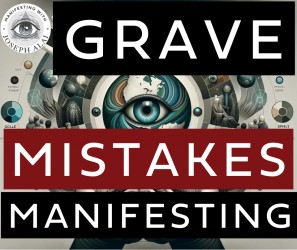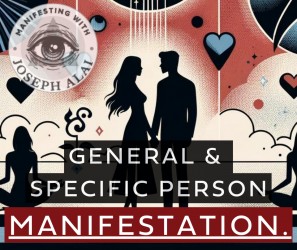How Do I concisely plan out that which I am to visualize?
That is the question I pondered again and again. I know with absolute faith that whatever I visualize, if I can make the scene so vivid that I can feel as if I am there, and I can feel the emotions of the event happen, then in a way I will never know, a series of events will unfold and lead me directly to the manifestation of my desire. The question was: "How do I know what to visualize? How do I plan it?"
That question constantly entered my mind as I prepared to go into a state akin to sleep, and when I would begin to visualize without a clear path, I sometimes would not know exactly what to visualize, and therefore I would get results exactly related to what I would visualize, but that would not necessarily be the exact thing I desired. It came down to planning. What would I plan?
So one night, I wrote down a series of questions to my subconscious mind, a series of questions that I always receive the answers to. This time I would ask how to plan out the scene so that I could know what to manifest. The question was in the context of me building my character to be like people I look up to.
I don't know exactly where the questions are that I had written down but I do know that I claimed, "I now know perfectly and at my will how to construct imaginal acts." I put into an Uber, it took me 15 minutes to get the Uber. One first left, then the other parked around the corner and I had to find it. I was infuriated that, again, my uber had been unimaginably late.
I got settled into the car only to then hear the perfect beginning of the Obituary part planned by the Newscaster. It was an obituary pro who was explaining how to perfectly and concisely plan an obituary. That was the perfect answer to my question! -- Because upon further research, the planner was talking about how to specifically write out Biographical information, and I realized that that is exactly what I was supposed to do when writing down what I wanted my subconscious to hear.
What I read was this, the perfect solution to my answer!
2. Biographical Sketch
Sketch is the key word here. An obituary is not a biography, but a recounting of the most important events, qualities, contributions and connections in a person’s life. Each life is unique, but among the most important universal milestones are: the date and place of birth, parent’s names including mother’s maiden name (ex: Bill and Barb (Maiden name) Green, date and place of marriage, birth name of spouse, education, work, and military service. An obituary is not a legal document, so if in your heart you feel that a step parent should be listed as a parent, that a divorce need not be mentioned, or that some experience should be omitted, follow your best judgment.
Listing events chronologically works well, but do not be afraid to put the more important information such as marriage before education, even if it took place afterward. A long list of honors and accomplishments is not often of interest to anyone outside the immediate family. Do mention significant contributions and recognitions, but if there are many, choose carefully and try to encompass as many as you can in as few words as possible. This summarization strategy works well for a person who was involved in many service and social organizations, places of employment, hobbies, or places of residence as well.
While we summarize to avoid long lists or chronological minutiae, we do well to give meaningful examples. A common utterance or specific example can illustrate and bring life to an obituary whether it is a quirky habit, a favorite recipe or a touching expression of love.
Many people prepare their own obituaries, and this can be a great exercise, but what those obits lack is mention of the impact that the deceased had on family members, and their community. Did her sense of humor brighten your life, did he always make time for the kid’s games? Did she make guests feel welcome? Paint her picture in the obituary with these details.
https://www.remembranceprocess.com/capturing-a-life-in-words/guide-to-writing-an-obituary/




